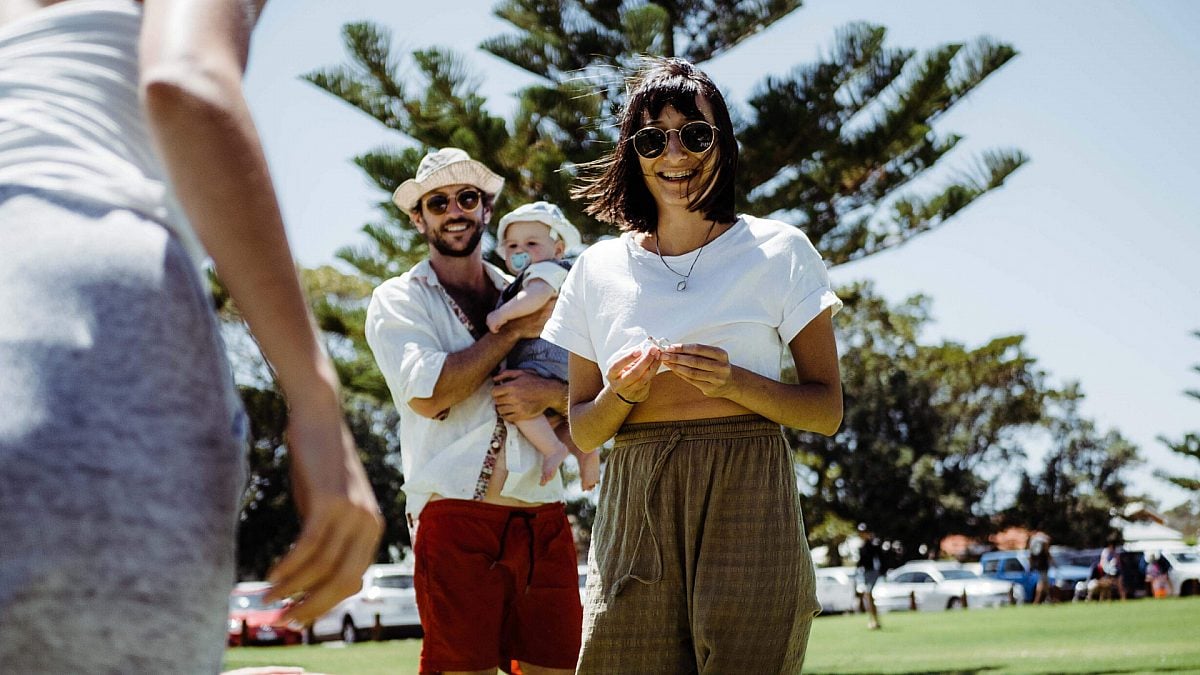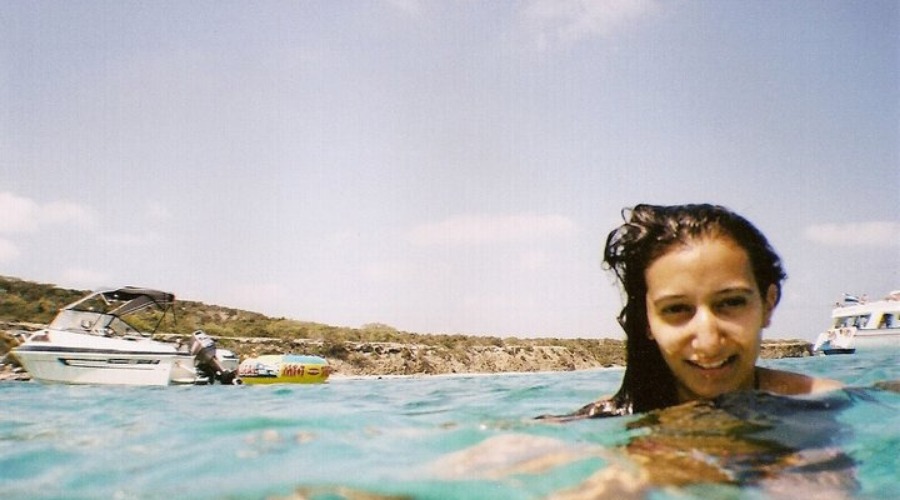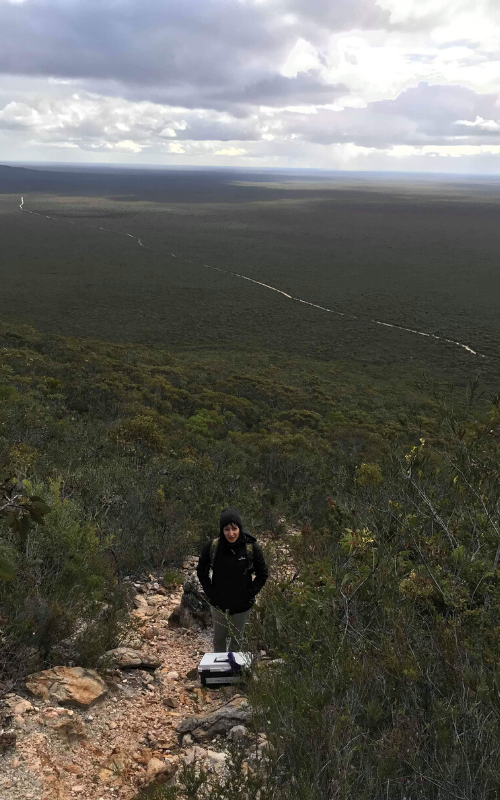
Wild journey
Finding a sense of purpose within your community.
Stephanie's path from marine scientist to Wilderness Society Community Organiser has taken her from her homeland of Cyprus to the wild shores of Western Australia. Along the way was a job at Melbourne Aquarium and, intriguingly, a stint at a liquid natural gas company.
Now, she's found her place within her local community group, trained and supported by the Wilderness Society.

A childhood spent on Cyprus and a close connection with the Mediterranean and all the life it holds was surely the inspiration behind a career in marine science? "No. It was actually the opposite," says Stephanie. "I grew up by the beach and nature in Cyprus, but the landscape over there is very degraded.
"There is very little wildlife. The oceans are empty; there are marine heat waves and ocean acidification. Growing up and watching all these amazing Attenborough documentaries and then going out into my backyard and finding that the reality was very different was a bit of a shock. So as a child, I knew there was something wrong."
Armed with a childhood-driven quest for answers, she left her island home at 18 to study marine science in Melbourne. Stephanie graduated and found a job at Melbourne Aquarium, before moving to Perth three years ago to do her postgraduate studies, working as a research assistant for the University of Western Australia.

"I pursued studying [marine science] because I eventually want to go back [to Cyprus] and see what can be done there, to see how I can help make the situation a little bit better," she says. "As a research assistant I got to do field work far out on the ocean, or if it was terrestrial work I was in the bush in the middle of nowhere. I saw lots of wildlife and places so remote that very few people had ever been there before.
"For example, the Marine Park at Esperance is just incredible. Even though it's a seven-hour drive from Perth I keep going back as much as I can."
From Cyprus to Melbourne and the wilds of Esperance, Stephanie has charted a unique course and the route she took to becoming a Wilderness Society volunteer wasn't typical either. Her local community group reached out to her, rather than the other way around, to help them with a campaign they were running to get rid of plastic waste. In her own time Stephanie was campaigning to reduce plastic pollution, acting as a consultant for individuals and organisations to help them reduce waste.
Stephanie's mission to fix the plastic problem can be tracked to her time at the aquarium. One of her colleagues started a plastic-free July challenge, which sparked something in Stephanie: "I guess it woke me up in terms of what is actually happening out there to fix problems; because throughout your [science] degree you hear about all these issues, but you're not really given any solutions to fix them."
Ready to find out more?
Sign up, and we'll call you to chat about how to get involved with your local group.
"Working with my local group, I got to meet a lot of interesting people that lived within a few kilometres of me. We set up the campaign, leveraged off everyone's different skills and we went out to businesses, gave them solutions to reduce their waste, encouraged them to take a pledge and did follow-up calls. We found that a lot of companies were keen to get on board."
While volunteering for the Wilderness Society and working as a research assistant on and off for the university, there was also a brief stint as a data analyst for a liquid natural gas plant. "I did some environmental data analysis for one of the LNG plants," Stephanie says. "I was in a corporate environment, getting environmental quality data sent to me from the labs, and then processing that and running stats on it, drawing trends and sending it off to either engineers or consultants. I did that for about six months."
She left to work for the Wilderness Society as a Community Organiser, fostering the community groups she had formed a connection with; an about-turn if ever there was one.
"Working in data analysis for an oil and gas firm was a natural next step that you're being told to take as a scientist," she says. "But I realised that it went against all my values and I didn't didn't want to pursue it at all. And as much as I love science and I understand that it's vitally important, personally I know that adding to a database doesn't fulfil me as much as engaging with a community to act does."
Within her local community group, Stephanie found a sense of empowerment she couldn't realise as a scientist. "It's a really good program because the Wilderness Society gives you the resources and the training necessary to actually go and do your own thing and really make a difference," she enthuses. "You are given the skills to act on situations within your community that you would have felt powerless to do so otherwise.

"Like simply talking; either to your local MP or actually putting a little campaign together with your group. People think you either need to be an environmental scientist or work in environmental activism to be able to make change, when in reality all you need to do is be passionate regardless of your background.
"For example, the simplest thing you can do right now is an EPBC submission telling the government to strengthen our nature laws. It sounds daunting but really all you have to do is share your story and why this matter is important to you. Your story is your truth and it's powerful; don't forget that.
"Big issues like climate change and deforestation can seem overwhelming. But feeling empowered to make a change can give you direction, hope and happiness."
Stephanie's story is proof that if you identify values you hold dear and have the courage to reframe your life around them, it can lead to a sense of purpose - of ikigai.
"At the end of the day, we're all in this together," she says. "And it's nice knowing that there are other people out there that care. It makes you feel less alone, and I’m talking out of experience."
Be part of it
Join your local community group of passionate volunteers powering change for nature.
Sign up now